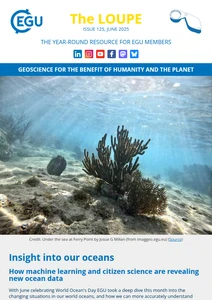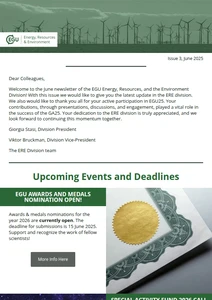President: Giorgia Stasi
(Emailere@egu.eu)
Deputy President: Viktor J. Bruckman
(Email)
ECS Representative: Thanushika Gunatilake
(Emailecs-ere@egu.eu)
The EGU brings together geoscientists from all over Europe and the rest of the world, covering all disciplines of the Earth, planetary and space sciences. This geoscientific interdisciplinarity is needed to tackle the challenges of the future. A major challenge for humankind is to provide adequate and reliable supplies of affordable energy and other resources. These should be obtained in environmentally sustainable ways, which is essential for economic prosperity, environmental quality and political stability around the world. One goal of the division Energy, Resources & the Environment (ERE) is to be a leading discussion forum for these issues. The core of the division consists of experts in various fields that will help meet the mutually coupled challenges of energy, resources and the environment.
Our Team
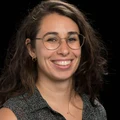
Giorgia Stasi
- President
- Programme Group Chair
- Email
Giorgia is a geologist specialized in Ore Geology and Applied Geophysics. She works at the Geological Survey of Belgium (RBINS) with a focus on critical raw material and technology development, and she is currently enrolled in a PhD program in Applied Geophysics at the University of Liège, Belgium. Her research focuses on the development of geophysical techniques for deep mining and robotic autonomous exploration. She is also active in geoscience communication and dissemination activities to the public.
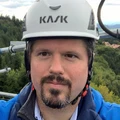
Viktor J. Bruckman
Viktor’s research interests include energy transition and renewable energy from biomass, with a focus on forests. He is also involved in biochar research and the investigation of carbon and nutrient cycles which includes soil processes and climate change. His interdisciplinary and holistic approaches are directed towards a sustainable and eco-friendly production and utilization of energy and natural resources.
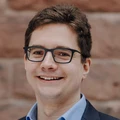
Johannes Miocic
- Science Officer
- Outreach Officer
- Email
Johannes is a geologist with a background in sedimentology and structural geology. His research focuses on the secure and sustainable use of the subsurface for the energy transition, including carbon dioxide and hydrogen storage and geothermal energy. He is particularly interested in (1) how pore-scale mechanisms influence reservoir scale processes, (2) faults and (3) what role subsurface utilisation can and should play in a renewable energy system.
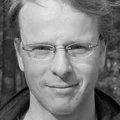
Michael Kühn
- Science Officer
- Publications Officer
- Email
Michael is a geochemist and hydrogeologist by training with a research focus on the numerical simulation of hydrogeothermal systems in the subsurface. This includes quantification of interactions between deep and shallow groundwater systems, geochemical water-rock-interactions, coupled numerical simulation (hydraulical, thermal, mechanical, chemical), formation of ore deposits, CO2 storage in geologic formations and hydrogeothermal energy provision.
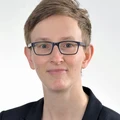
Sonja Martens
Sonja is a civil and environmental engineer by training with a background in both academia and industry. Her research focuses on hydrogeology , numerical flow and transport simulations and the sustainable use of georesources and the subsurface, for example investigating CO2 storage in geological media.
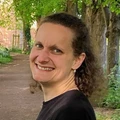
Astrid Fajtak
Astrid is a trained environmental engineer, specialised in hydrology and soil physics, as well as waste management. In her current research position, she works in groundwater management and post mining remediation in Eastern Germany. Here, the main focus of her research is in contaminant transport and environmental protection. Her most recent research project focusses on large scale connections of water storage solutions on the intersection of drinking water, groundwater and energy management.
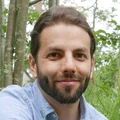
Daniel Ospina
Daniel has a background in sustainability science, and has worked primarily on interdisciplinary integration and synthesis, focused on Earth system science. Over the past five years, he has been increasingly involved in science communication and policy engagement, endeavouring to make key research advances more accessible and relevant to governmental and corporate decision-makers.
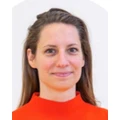
Sarah Weihmann
Sarah Weihmann has a background in geosciences with focus on geomechanics and has been involved in both academic and industry projects in the oil and gas and nuclear waste storage sector. Her ongoing research interests include faults and fractures in geoenergy applications, geological storage of nuclear waste, reservoir geomechanics and numerical simulations. She is currently working at RWTH Aachen.
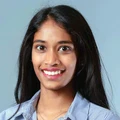
Thanushika Gunatilake
Thanushika research focuses on numerical modeling of fluids in the subsurface. Her research branches into two main directions: firstly, she delves into the geodynamic processes occurring at the Earth’s surface across various tectonic environments, such as the central Apennines or subduction zones, aiming to unravel the underlying physics of natural earthquakes. Secondly, she dedicates her efforts to exploring the transition towards a net-zero energy system, which involves conducting numerical studies on CO2 sequestration and geothermal exploration.
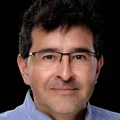
Rotman Criollo
- ECS Co-representative
- Email
Rotman aims to understand the dynamics of the energy-water nexus in the subsurface, as well as exploring its relationship with human activities. This understanding will not only serve as the foundation for better resource management but also for considering the effects of climate change, anticipating and/or reducing natural risks, and integrating them into land and subsoil planning.
As ECS representatives, together with Tanushika Gunatilake, our commitment is to continue the work of creating a common space for early-career professionals, where we can support each other in our careers.
Latest posts from the ERE blog
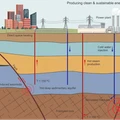
Interview with ERE Outstanding ECS Awardee Iman Rahimzadeh Kivi
Congratulations for being awarded this years Early Career Scientist Award of the ERE division! Can you tell us a bit about yourself (not only about your work life)? Thank you so much! I am delighted to receive this award and grateful to the European Geosciences Union for this recognition. I am an engineer and a geoscientist with a passion for understanding the Earth’s subsurface processes and their implications for developing clean energy resources and sustainability. I generate knowledge, workflows and …
Read more
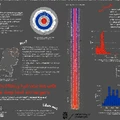
How to Make Scientific Posters
The schedule of the annual EGU general assembly has just been published and if you submitted and abstract you do now know whether or not you will be able to give a poster presentation. Maybe this is the first time you will need to present a scientific poster or are wondering how to make your poster for this year’s conference. Look no further, we have compiled some thoughts for you in this blog post. There is also a small gallery …
Read more
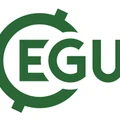
Introduction of the ERE division
Hello and welcome to the reopened blog of the Energy, Resources and the Environment Division of the EGU! We want to use this blog in the future actively to keep you updated with what is happening in our division and to highlight various ERE related topics of interest, activities and research. But today we want to first introduce ourselves. In the ERE division, people who work to better understand our planet’s energy, resources, and environment and its inter-and transdisciplinary aspects …
Read more
Recent awardees
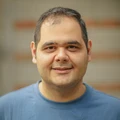
- 2025
- Division Outstanding Early Career Scientist Award
The 2025 Division Outstanding Early Career Scientist Award is awarded to
Iman Rahimzadeh Kivi for outstanding contributions to the characterisation and modelling of coupled thermo-hydro-mechanical-chemical (THMC) processes in geo-energy applications and enthusiastic community service.
Read more
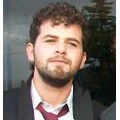
- 2024
- Division Outstanding Early Career Scientist Award
The 2024 Division Outstanding Early Career Scientist Award is awarded to
Roberto E. Rizzo for outstanding research in the field of rock fractures and associated community service.
Read more
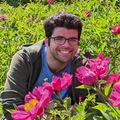
- 2024
- Outstanding Student and PhD candidate Presentation (OSPP) Award
The 2024 Outstanding Student and PhD candidate Presentation (OSPP) Award is awarded to
Gabriele Benedetti FracAbility: A python toolbox for survival analysis in fractured rock systems
Read more
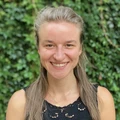
- 2024
- Outstanding Student and PhD candidate Presentation (OSPP) Award
The 2024 Outstanding Student and PhD candidate Presentation (OSPP) Award is awarded to
Isabel Lange Dissolution experiments on a polyphase basalt surface under conditions relevant to offshore CO2 storage
Read more
Current issue of the EGU newsletter
Current issue of the ERE division newsletter
What is new in the Energy, Resources and the Environment Division in June? Deadlines for Awards & Medals nominations, Special Activity Fund, and ERE special issues are approaching!
Read more


















